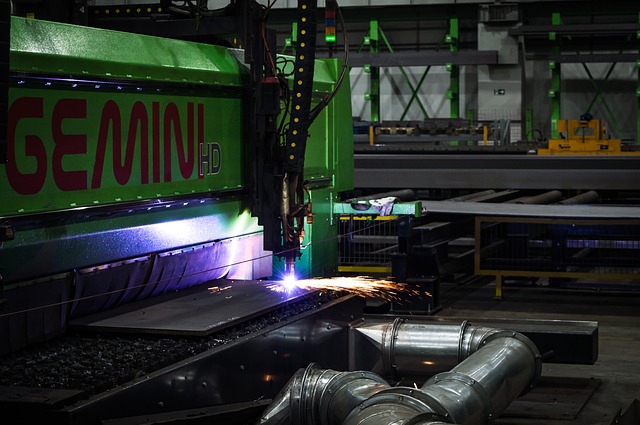
Automation: the challenges we face
Read a summary using the INOMICS AI tool
Automation will transform our world; there is no doubt about it. Quite how, though, is highly contested – whether optimist or pessimist, there are predictions to match every predilection. Newspapers alternately run articles speculating a work-free, post-capitalist future filled with armchair philosophising, with forecasts of a world ravaged by inequality in which robots tend to the mega-rich, and everyone else is cast onto the scrap heap to contemplate what-on-earth went wrong. Little, it appears, exists in the in-between.

Couching reporting in such hyperbolic terms is nothing new, characterising, as it does, the bulk of mainstream print and broadcast media. Click bait culture has ensured it’s a profitable ploy that makes sound business sense. Its utility in helping society navigate the effects of automation - the tumultuous nature of which is already being felt - is harder to reason. Instead, the incessant deployment of the utopia/dystopia dichotomy seems to have helped foster inertia - a worldwide paralysis of inaction. Big changes are afoot and as The Economist has said 'no one is ready’.
The majority of political discussion on the topic offers little in the way of reassurance. Much of the right appears to have taken its traditional recourse in moments of concern: invoking the ‘magic of the market’. An untrammelled market will balance things out they promise, trickle-down economics this, deregulate that. Such rhetoric provides little comfort, particularly to those who have already lost their jobs. The left, on the other hand, has been strangely quiet on the issue, some factions believing fears of automation are being mobilised as a distraction from more pressing issues like the dismantling of the welfare state. In all likelihood, it will require a large and collective political effort to avoid the most dislocating effects of automation. And the beginnings of such a project are currently nowhere to be seen.
What's in store?
What exactly should they be preparing for? Some say we’ve been here before, and should, therefore, look to the past for guidance. Societies have endured the industrial and digital revolutions, both of which prompted concern over the disruptive effects they would have on the job market. And yet, as they transpired, neither caused the social crisis of extreme mass unemployment many predicted. Instead, jobless rates have continued to rise and fall with the business cycle.
The signs, however, point to this wave of automation being different to previous: both faster and more encompassing. Whereas in the past the jobs automated tended to be either manual jobs - prior to the industrial revolution working in agriculture and then later standing on an assembly line - or very narrow computational work calculating numbers, technology is now beginning to displace jobs requiring intellectual or cognitive capability. Learning machines are already making decisions and solving problems quicker and with fewer mistakes than humans, meaning typical white-collar work like quantitative analysis and report creation, particularly when repetitive, are becoming the domain of the machines. Office work, as it’s currently known, is on the verge of being consigned to history. Ultimately, the proportion of work susceptible to automation is getting larger and larger, and no sector is safeguarded from infiltration.
Job loss, job change
The common retort at this point is that new jobs will be created. And this, of course, is true; new jobs will arise, some presumably that we currently are unable to even fathom. What we don’t know is how many, and of what kind. Because this wave of automation is expected to permeate every corner of the economy, there is a concern the number of jobs created will not offset the number lost. Quite how large the discrepancy will be is unclear. What is certain is that the job market will become increasingly unforgiving. Historian Yuval Noah Harari is recommending that workers of tomorrow should expect at least a handful of occupation changes in their lifetime, such is the changing face of the economy. This is a big deal. For the majority, enforced career change is a radical upheaval, often involving a troubling mix of emotional stress and financial instability. A decade ago, to experience it once was to be considered unlucky. For the coming generation, to experience it twice will likely be thought remarkably fortuitous.
Smoothing this transition, if at all possible, will require a transformation of educational systems. In their current form most do little to prepare people, skills-wise or emotionally, for a future defined by change. Soon, too, the ability to actually switch careers may come to be considered a privilege, as when a job is automated and a new one created, there is no guarantee that the newly unemployed person will have the skills required of the new job. What happens then? To quote Harari, 'if you think about a 40-year-old unemployed textile worker in Bangladesh, he or she just doesn't have the skills to design virtual worlds.'
And still, the A.I revolution is just a blip on the political radar. Much of the American political class, for instance, seem more wary of Mexicans taking jobs than computers – and thus, with priorities misaligned, the requisite preparation is not being made. Governmental provision of lifelong education, accessible to all and available at any time, could be one intervention that helps stave off the creation of a class of people unneeded by the economy, and potentially deemed surplus to requirements. Indeed, if that scenario did come to pass, a large portion of humanity’s fate would rest in the hands of the powerful. And relying on their benevolence is a risky game.
It's all a bit pointless
While some jobs created may be inaccessible to many, a large portion may also simply be undesirable. It has been argued that the productivity benefits of automation we are experiencing, instead of leading to a shorter working week, as predicted by John Maynard Keynes in 1930, have instead created an array of pointless jobs, the existence of which cannot even be justified by those who do them. These roles often exist to: bolster the egos of employers, for instance, assistants; to work aggressively on their behalf, such as lobbyists and corporate lawyers; and to ameliorate preventable problems, like programmers that repair botched code. Anthropologist David Graeber has written extensively on this, citing studies that reveal the alarming extent to which people are unsatisfied with their work. In a culture that strongly associates work with self-worth, this is profoundly damaging. And as automation ramps up, his fear, shared by many, is that this trend will continue and the psychological suffering will be widespread.
With growing regularity, universal basic income (UBI) is being touted as a potential remedy to both unemployment and the proliferation of ‘pointless’ jobs. Historian Rutger Bergman, for instance, has come to prominence riding the back the UBI wave. Its experimental provision has been recorded as ameliorating the damaging psychological effects of joblessness, while providing its recipients with the freedom to choose jobs (if they exist) they value, rather than being rushed into one they don’t. Again, though, in most quarters UBI is still considered a radical idea, and would require a strong political will for its implementation. For now, at least, this remains some way off.
Inequality and unaccountable power
The trend towards extreme inequality, as exists across the Western world, also stands to hypercharge the potential problems caused by automation. If left unaddressed, the problem will not be the robots themselves, but rather those who own them. Labour-saving technology is often expensive - precluding its purchase by just anybody - and affords its owner great power. From a financial perspective, once invested in, automated elements can significantly reduce costs and increase the efficiency of a company such that rival enterprises are simply run out of business - ask a record shop owner what they think of Amazon. Through this development, the means of production, already owned, relatively speaking, by a tiny minority, will concentrate into fewer and fewer hands. In a world of diminishing resources, this could prove particularly dangerous.
To instead ensure the spoils are at least somewhat shared, it will be incumbent on politicians to regulate, both nationally and internationally, against this, probably through the enforced democratisation of businesses and the breaking up of the biggest companies. Given the influence big business already exerts over the democratic process, through campaign funding, lobbying, etc., this will likely be fraught with difficulty. Without intervention, global power could continue to tip away from governments towards businesses, specifically tech companies, a transition that could make the might of today’s behemoths, Google and Facebook, look insignificant; think Dave Eggers’ dystopian novel The Circle.
Action is needed
Of course, the issues outlined above represent just a few automation has, or probably will, throw our way. There are, no doubt, many more in store, some that may come in recognisable form, and others that will likely arrive abruptly, without warning, and challenge the conceptual foundations on which we live. What is imperative, therefore (and yet remains conspicuously absent) is that we consider, on a political level particularly, these potential changes and prepare for them as best we can.
The lessons are there: the industrial revolution wreaked untold damage on the neediest, and protective reforms only arrived after many lives had been ruined. We must use this as a guide to ensure society pre-empts a repeat of such unnecessary hardship. If ignored, automation, combined with the threat of climate deterioration and the inevitable competition for space and resources, has the unprecedented power to take us to any number of unimaginably dark places. It need not, or rather, it should not be that way - a brighter future can be built and is still within our grasp. It just requires action.
-
- Conferencia
- Posted 1 week ago
46th RSEP International Conference on Economics, Finance and Business
Between 17 Apr and 18 Apr in Paris, Francia
-
- Postdoc Job
- (Remote)
- Posted 1 month ago
Vacancy for a Postdoctoral fellow
At University of Ghent in Gent, Bélgica
-
- PhD Program, Program, Postgraduate Scholarship
- Posted 3 days ago
PhD Program in Economics - 6 Fully Funded Scholarships
at Luiss Guido Carli University of Rome in Rome, Italia













